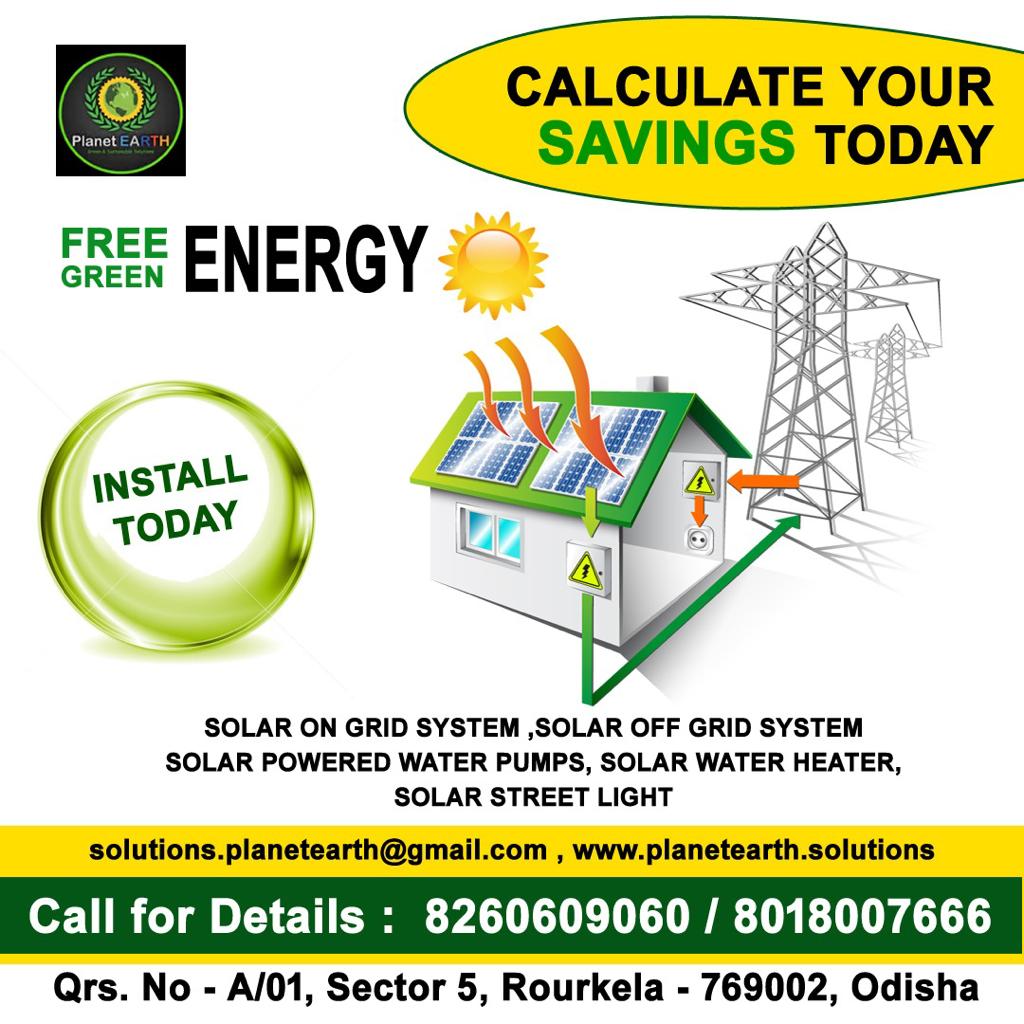In a world that’s becoming increasingly conscious of its environmental footprint, harnessing the power of the sun has emerged as a promising solution. Solar energy has gained immense popularity as a clean, sustainable, and renewable energy source. Whether you’re a homeowner, business owner, or just a curious eco-conscious individual, understanding the difference between on-grid and off-grid solar systems is essential. In this blog, we’ll take a closer look at these two solar solutions and help you decide which one might be the right fit for your needs.
On-Grid Solar Systems:
- The Basics On-grid solar systems, also known as grid-tied or grid-connected systems, are the most common type of solar installation. They are directly connected to the local utility grid, allowing excess electricity to be sent back to the grid, and draw power from it when your solar panels aren’t producing enough energy.
- Reliability One significant advantage of on-grid systems is their reliability. When the sun isn’t shining, or your solar panels aren’t producing enough electricity, you can seamlessly switch to grid power. This ensures a constant and uninterrupted power supply, eliminating any worries about power shortages.
- Cost-Effectiveness On-grid solar systems are typically more cost-effective than off-grid systems. Since you can rely on the grid as a backup, you don’t need to invest in expensive battery storage solutions. This makes the initial setup more affordable.
- Return on Investment (ROI) In many regions, on-grid solar systems are eligible for net metering, a billing arrangement that allows you to earn credits for the excess electricity you generate. These credits can be used to offset your electricity bills, increasing your ROI over time.
Off-Grid Solar Systems:
- The Basics Off-grid solar systems, as the name suggests, are not connected to the utility grid. They rely on battery storage systems to store excess energy for use when the sun isn’t shining. Off-grid systems are commonly used in remote areas where connecting to the grid is not feasible.
- Energy Independence One of the primary advantages of off-grid solar systems is energy independence. You generate, store, and consume your electricity, reducing your reliance on external power sources. This is especially valuable in areas with unreliable grid access.
- Environmental Impact Off-grid systems are a great choice for those seeking complete energy autonomy and a reduced carbon footprint. Since they don’t rely on the grid, they are entirely self-sufficient and produce minimal greenhouse gas emissions.
- Initial Costs The initial setup costs for off-grid systems are higher compared to on-grid systems due to the need for battery storage and backup generators. However, over time, these costs can be offset by the savings on utility bills.
Deciding between an on-grid and off-grid solar system ultimately depends on your unique needs and circumstances. On-grid systems are reliable, cost-effective, and a great option for those looking to reduce their carbon footprint while still enjoying the convenience of the grid. On the other hand, off-grid systems offer energy independence and are ideal for remote locations or individuals seeking complete self-sufficiency.
Whichever system you choose, both contribute to a cleaner, greener planet by harnessing the abundant energy of the sun. Planet Earth Solutions is here to help you make the right choice and guide you through the process of transitioning to solar power, ensuring a brighter and more sustainable future for all.

